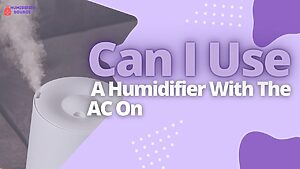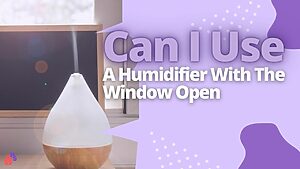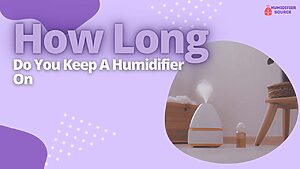There are a lot of different options for humidifier water out there. So, which is the best? In this blog post, I’ll compare two of the most popular types of water for humidifiers – reverse osmosis (RO) and distilled water.
RO water is made by forcing water through a semipermeable membrane, which removes impurities. Distilled water is made by boiling and then condensing the steam into liquid form.
So, which type of water should you use in your humidifier? Keep reading to find out.
Key Takeaway’s
- Reverse osmosis is a process where water is forced through a semi-permeable membrane to remove impurities.
- Distilled water is water that has been boiled to remove impurities.
- Reverse osmosis produces water with a higher purity than distilled water.
- Reverse osmosis requires more energy to produce than distilled water.
- Reverse osmosis is the preferred method for purifying water for humidifiers.
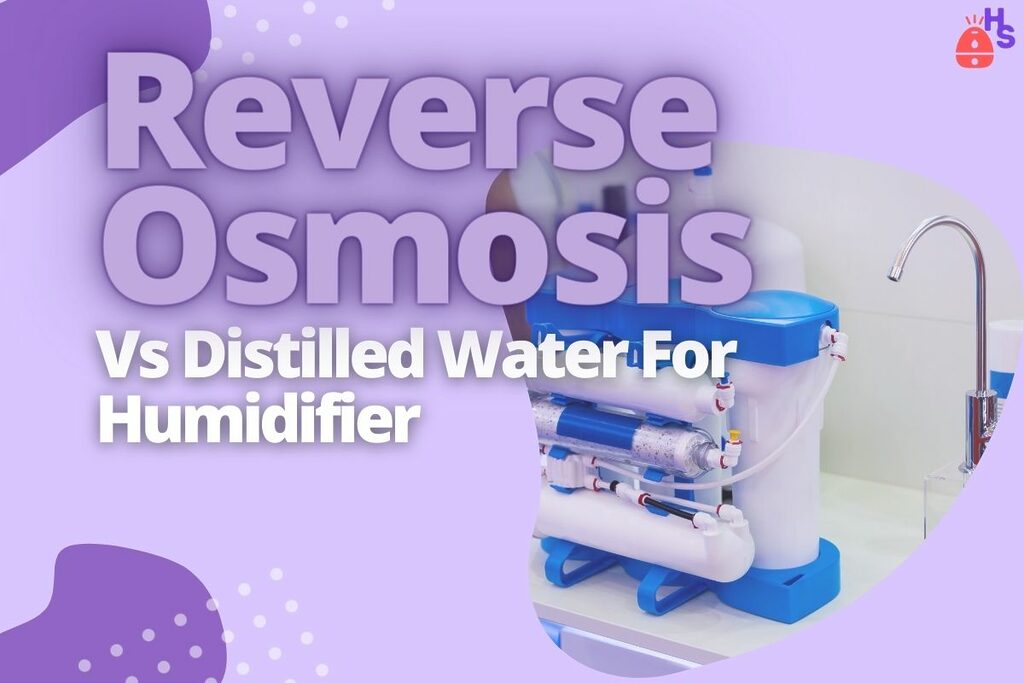
Difference Between Reverse Osmosis And Distilled Water For Humidifier
Reverse Osmosis (RO) water and Distilled water are two of the purest types of water you can get. They are often used for different purposes, such as in humidifiers, and it’s essential to know the difference between them.
- Reverse osmosis is a process where water is forced through a semipermeable membrane. This removes dissolved solids, impurities, and minerals from the water. The result is pure water that is almost completely free of contaminants. However, because RO water has removed all its minerals, it can be corrosive to some materials like metals. It can also have a slightly “flat” taste because it lacks the natural minerals in other waters.
- Distilled water is made by boiling and then condensing the steam into liquid form. This process removes all impurities and contaminants from the water, including dissolved solids, minerals, and bacteria. Distilled water does not have any beneficial minerals found in other waters, but it doesn’t have any harmful chemicals or contaminants.
What kind of water should you put in your humidifier, then? The answer depends on what you are trying to achieve with your humidifier. If you want to add moisture to the air without adding any other substances, then distilled water is the best option.
However, if you live in an area with hard water or want to add some beneficial minerals to the air, reverse osmosis water may be a better choice.
Reverse Osmosis
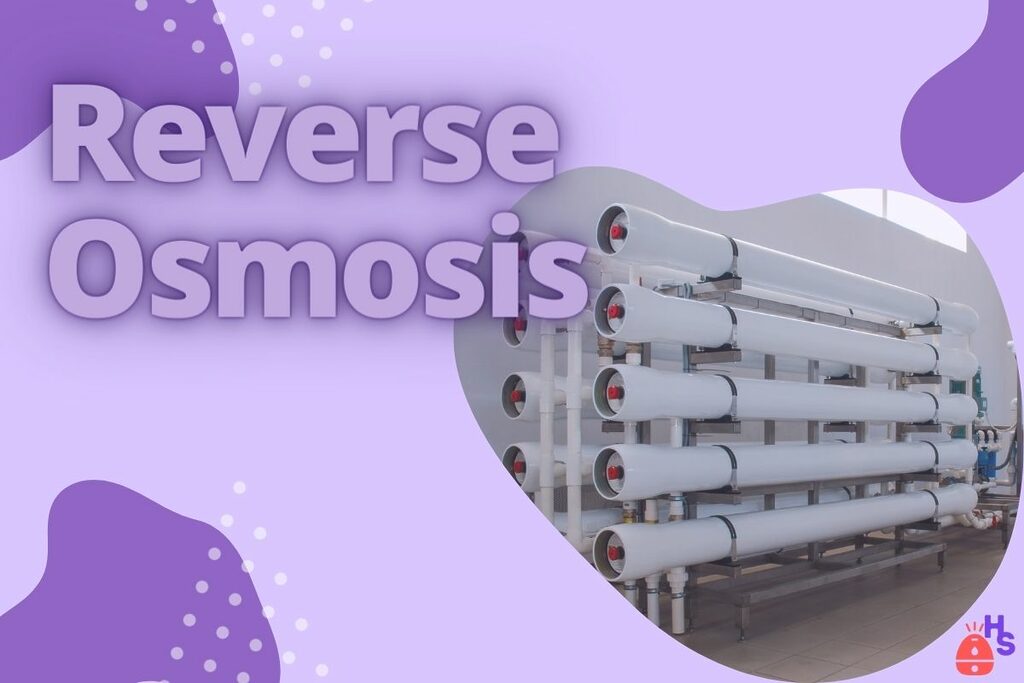
Water is driven through a semipermeable membrane during reverse osmosis (RO), purifying water by removing contaminants. This can be used in many industries, including food and beverage.
RO systems produce purified drinking water and industrial applications such as cleaning chemicals or acids from an industrial waste stream.
Distilled Water
Distilled water is pure and free of harmful bacteria, viruses, and other microorganisms. It also contains no chemicals, minerals, or impurities that may be found in tap water.
Distilled water is free of fluoride, chlorine, and other chemical contaminants in regular tap water.
Fluoride is a naturally occurring mineral that helps prevent cavities by strengthening tooth enamel. At the same time, chlorine keeps your pipes clean, so you don’t have to worry about them corroding over time (you know what we mean).
Reverse Osmosis Produces Less Humidification Than Distilled Water
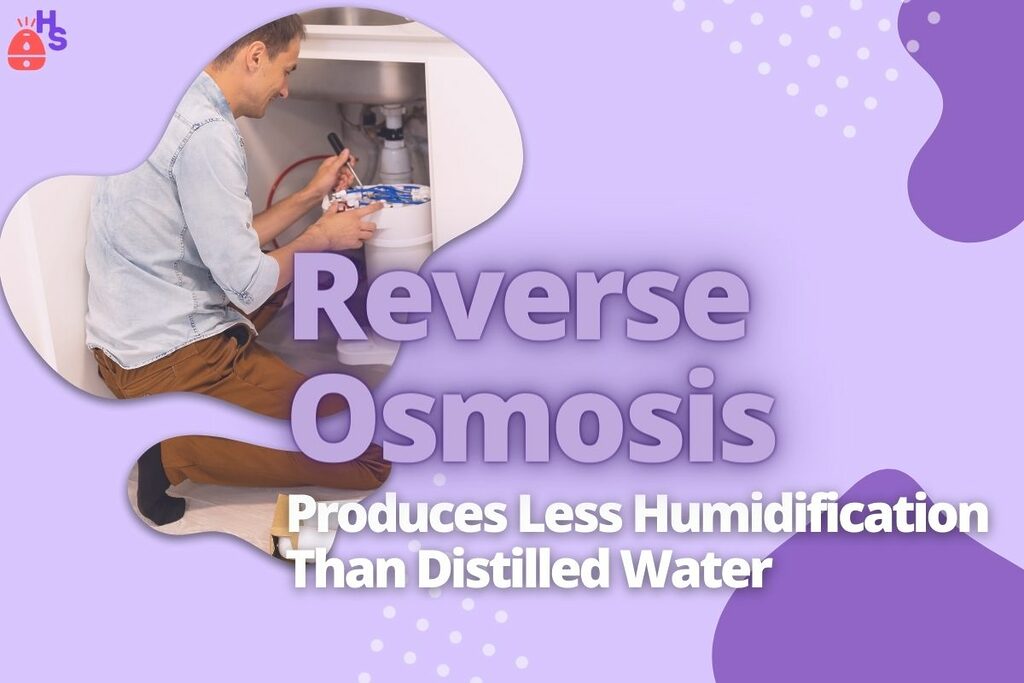
One of the main differences between reverse osmosis water and distilled water is that Reverse Osmosis water humidifier produces less humidity than distilled water humidifier.
Reverse osmosis produces water with fewer dissolved minerals than distilled water. This can make your humidifier last longer and reduce the likelihood of mineral buildup in the tank.
Additionally, reverse osmosis filters remove many dissolved minerals from water, reducing the amount of white dust produced when using a humidifier.
Although utilizing reverse osmosis filtered water in your humidifier has numerous advantages, there are a few things you should be aware of before switching.
Because reverse osmosis removes dissolved minerals from water, it can also remove magnesium from water.
Reverse Osmosis Requires More Energy Than Distilled Water
Reverse osmosis can put out small quantities per day. The energy required to produce that much water is expensive, but it’s still cheaper than what you’d pay for distilled water.
Distilled water systems are typically more efficient because they use less energy and produce less waste.
Reverse Osmosis Produces Wastewater That Must Be Disposed Of, While Distilled Water Does Not
During reverse osmosis, water is forced through a semipermeable membrane using pressure and an electric current. This process leaves all impurities, including minerals and heavy metals like lead, copper, and zinc.
Due to this, there are rigorous guidelines about how much reverse osmosis water can be used in a building before it needs to be discarded.
Distilled water (or demineralized) does not produce wastewater from its processing; instead, it’s simply filtered through reverse osmosis membranes before being bottled at the end of its life cycle—but even then, it doesn’t have any residue left behind after production as some other types do.
Reverse Osmosis Systems Are More Expensive Than Distilled Water Systems
Reverse osmosis systems are more expensive than distilled water systems because of the filters needed to filter out impurities. The most common filter is a carbon block, which can be expensive and must be replaced often.
Additionally, while they do not require electricity to run their pumps, some models also require batteries or other power sources (such as solar panels) for their operation.
Which One Is Better For Humidifier-Reverse Osmosis Or Distilled Water?
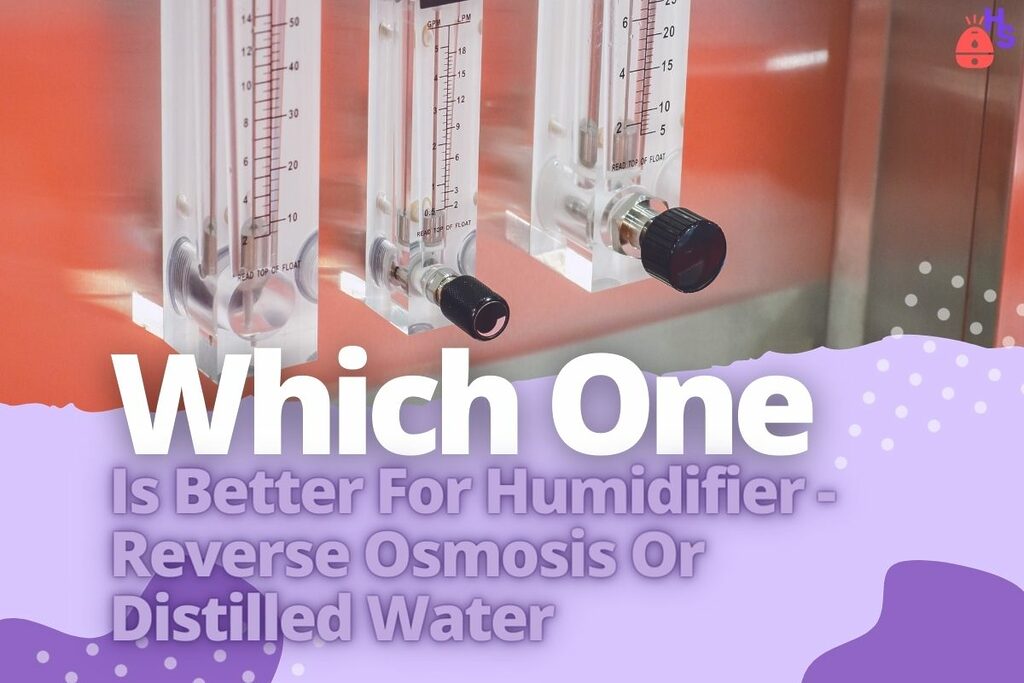
The ideal sort of water to use in a humidifier depends on various criteria. The two most common types of water used in humidifiers are reverse osmosis (RO) and distilled water.
- Reverse osmosis is a type of filtration that removes impurities from water by forcing it through a semipermeable membrane. This process removes up to 99% of all contaminants, including dissolved minerals, bacteria, and viruses. The main advantage of using RO water in a humidifier is that it will not leave any mineral deposits behind. However, there are some drawbacks to using RO water as well. One is that it can remove too many minerals from the water, making it acidic. Another drawback is that RO systems can be expensive to install and maintain.
- Distilled water is another option that can be used in a humidifier. Distilled water is made by boiling and then condensing the steam into liquid form. This process removes all impurities, including dissolved minerals, from the water. The advantage of using distilled water in a humidifier is that it will not leave any mineral deposits behind and will not become acidic over time like RO water. However, one disadvantage of using distilled water is that it does not have any minerals, which means it can leach minerals out of objects like metals and glass if left for extended periods.
Health Risks Associated With Reverse Osmosis Water For Humidifiers
- Reverse Osmosis water for humidifiers is not necessarily a good choice for everyone. It can increase the number of bacteria in your home, which may harm your health if you have asthma or allergies.
- Reverse osmosis also increases the number of chemicals in your water, such as fluoride and hard water minerals. These chemicals can cause irritation to sensitive skin and eyesight problems when they get into contact with them (such as reddening).
- Finally, because reverse osmosis removes all impurities from its source before filtering out any remaining contaminants like salt or calcium ions (which are commonly found in tap water), it will also remove any beneficial nutrients that could otherwise be added back into your body through drinking this type of beverage regularly.
Health Risks Associated With Distilled Water For Humidifiers
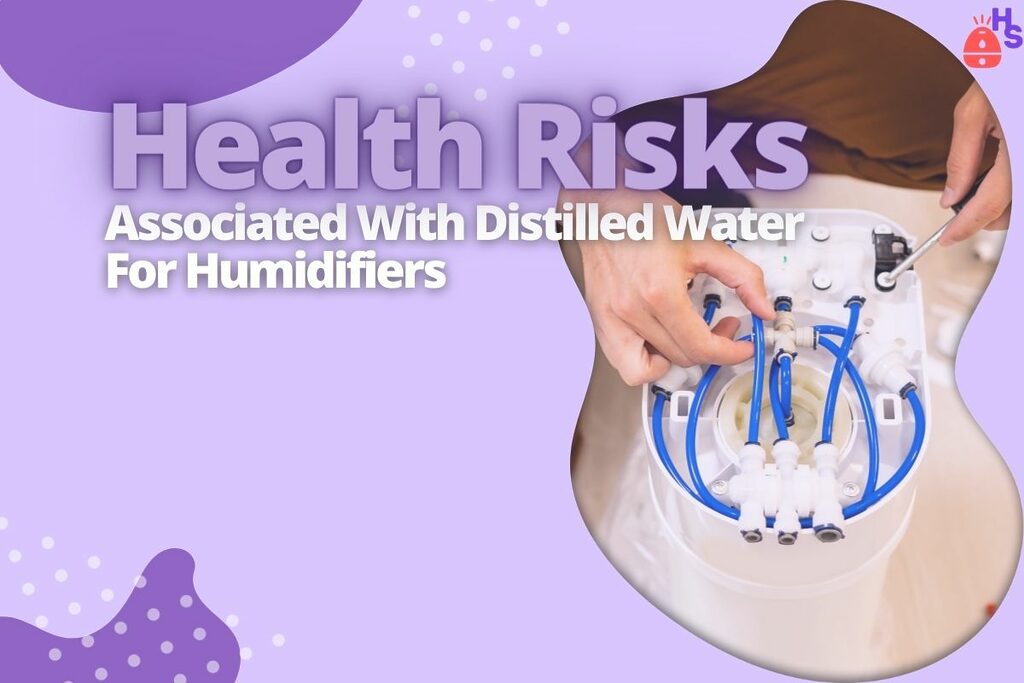
In the end, you’ll want to consider the cost of your system. Reverse osmosis systems are more expensive than distilled water systems due to their high-tech design and materials used in construction.
They also require more energy than a simple distiller.
If you’re looking for an environmentally conscious way to humidify your home without worrying about health risks or having to deal with wastewater disposal issues, then choosing a reverse osmosis humidifier would be ideal/
Conclusion
Reverse osmosis and distilled water are two popular options for filling a humidifier. But which one is the best option? Filtered water is pumped across a semipermeable membrane during the reverse osmosis process.
This procedure removes dissolved minerals and other contaminants from the water. Distilled water is made by boiling and then condensing the steam into liquid form. This process also removes impurities, including dissolved minerals.
So, which type of water should you use in your humidifier? Reverse osmosis water is the better option because it contains no dissolved minerals.
Distilled water can leave deposits on surfaces, leading to mineral buildup over time.
Frequently Asked Questions
Why is distilled water better than tap water when it comes to humidity control in a home or office setting?
Distilled water is made from tap water that has been boiled and then distilled. This process removes dissolved minerals, which makes distilled water a better choice than tap water when it comes to humidity control in a home or office setting. Distilled water also doesn’t contain any dissolved minerals, which can leave deposits on surfaces over time.
How do I choose a good filter size for my humidifier?
When choosing a filter size for your humidifier, make sure to select one that is smaller than the water line of your humidifier. The water line is the line that marks the top of the water tank in most humidifiers. If you choose a too-large filter, water will bypass it and fill up your humidifier’s filters. Over time, this can lead to buildup and poor performance from your humidifier’s filters.
Is there a difference between reverse osmosis and distillation?
There is a significant difference between reverse osmosis and distillation regarding water quality. Reverse osmosis water doesn’t contain dissolved minerals, making it the best option for humidifier use.
Is it better to buy an expensive unit or one that’s cheap but doesn’t work well?
The greatest choice you make will ultimately depend on your unique needs and financial situation. However, it’s essential to know that a poor-quality humidifier can lead to health problems in children and adults. So, be sure to select a quality humidifier that will provide relief from dry air conditions.
Author
- The Right Way To Fill A Humidifier: Hot Or Cold Water?
- Humidifier And AC: Is It A Match Made In Heaven?
- Can I Use A Humidifier With The Window Open (Solve Your Dilemma)
- Perfect Air Quality: How Long To Run Your Humidifier
- Should You Have A Humidifier In Nursery (The Surprising Benefits)
- Humidifiers In Bedrooms: A Guide To Good Placement



